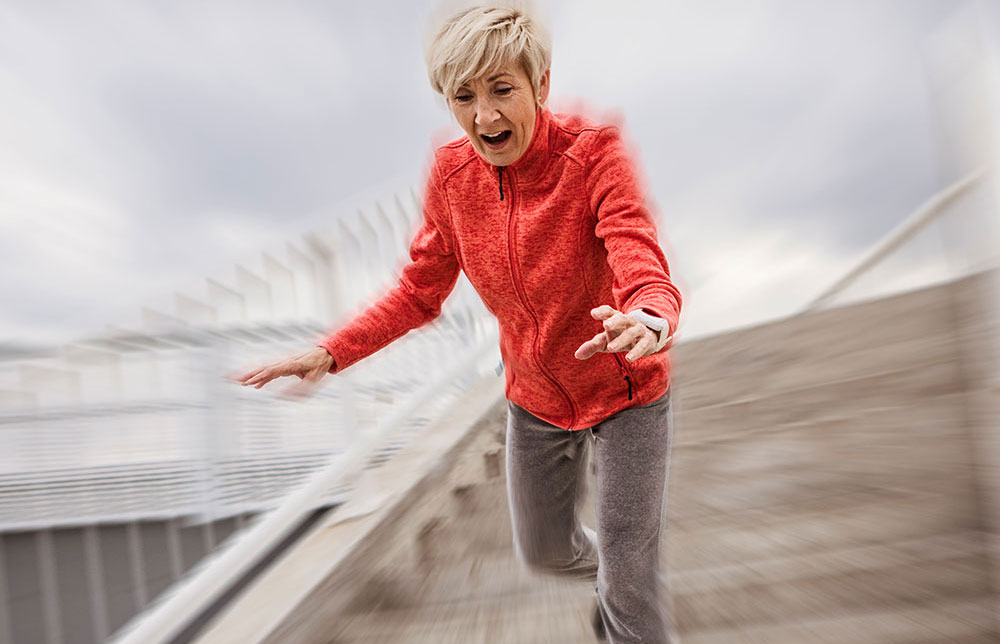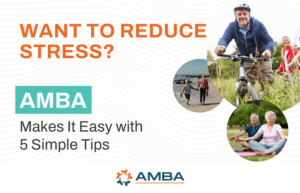
While most of our fears are learned, there are only two we’re born with: loud noises and falling.
Nobody wants to fall, and understandably so. There’s very little control, if any. We’re never sure how we’ll land, only that it’s going to hurt—not just our body but also our self-esteem. According to the Centers for Disease Control, one out of four older Americans falls each year, but less than half tell their doctor.
If you fall, you literally won’t be alone. At least one other American will be falling at exactly the same time. Every second of every day in the United States, an older adult falls, making it the number one cause of injuries—and deaths from injury—among older Americans.
Plan A? Prevent falling in the first place. You can:
- consult your healthcare provider about fall prevention
- talk to your doctor or pharmacist about medications that may make you more likely to fall
- get an annual eye exam
- receive expert instruction in Tai Chi or other physical activities to improve your balance and strengthen your legs
- rid your home of obstacles
If you fall, go to Plan B, which is to fall as safely as possible. Paratroopers, stunt professionals, and martial arts instructors can tell you there’s a right way to fall. Jessica Schwartz, a physical therapist in New York City, trains athletes and people with prosthetic limbs to fall without hurting themselves.
“It’s almost inevitable you are going to fall, so you really should know what to do,” she says.
First and foremost, protect your head. If you feel yourself falling forward or backward, turn to a side and tuck your chin. Avoid falling on outstretched hands or on your knees. Bend your elbows and knees, and land on the fleshiest part available: the side of your thigh, buttocks or shoulder.
“Aim for the meat, not bone,” advises Kevin Inouye, a stuntman and assistant professor of acting, movement and stage combat at the University of Wyoming. “Your instinct will be to reach out with hands or try to catch yourself with your knee or foot, but they are hard and not forgiving when you go down.”
Counterintuitive as it seems, the best thing you can do when falling is relax. The best fallers tend to be young children, because they stay loose instead of contracting.
“Accept that you’re falling and go with it,” says Paul Schreiner, a black belt jiu jitsu instructor in New York City. “Round your body, and don’t stiffen.”
And, if you end up injured, there’s always Plan C. Recovering in the comfort of your own home is usually preferable for various reasons. You’ll feel more at home (because you’re home). And Home Health Care, sometimes called Short-Term Care, is usually less expensive, more convenient, and just as effective as care in a hospital or skilled nursing facility. A Home Health Care policy from your association and AMBA covers a range of benefits, covering costs and services Medicare may not.
As Lincoln said, “It’s not how many times you fall but how many times you get back up.”
SOURCES:
https://www.cnn.com/2015/10/29/health/science-of-fear/index.html
https://www.nytimes.com/2017/01/24/well/move/the-right-way-to-fall
https://www.medicare.gov/what-medicare-covers/whats-home-health-care




